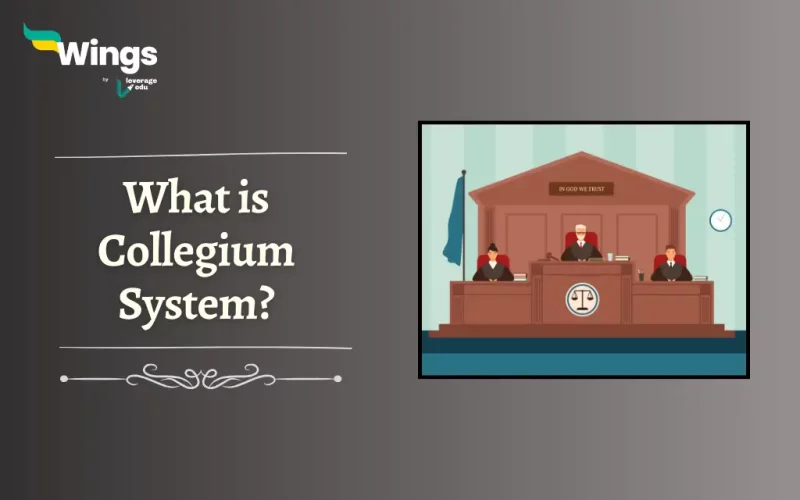The Collegium system is a method for appointing judges to higher courts in some countries. It is a process where a panel of existing judges recommends candidates for judicial appointments. Furthermore, the Collegium system aims to guarantee the independence of the Judiciary by giving judges significant control over who joins their ranks. In this blog, you will also get to know about the Collegium system in India and more!
Table of Contents [show]
Features of a Collegium System
In addition, here is a breakdown of the Features of the Collegium system:
- Composition: The collegium usually consists of senior judges from the highest court in the country. Moreover, the exact number and selection process can vary.
- Function: The role of the Collegium is to consider potential candidates for judicial vacancies.
- In addition, they evaluate their qualifications, experience, and suitability for the role.
- Therefore, based on this evaluation, they recommend a shortlist to the government for final approval.
- Benefits: Supporters of the Collegium system argue that it protects the judiciary from political interference.
- Furthermore, judges are best placed to evaluate the competence and integrity of their peers, hence encouraging a strong and independent judiciary.
Also Read: Appointment of Judges of Supreme Court: A Guide
What is the Collegium System in India?
India has a unique version of the Collegium System, established through Supreme Court judgments rather than a specific law in the Indian Constitution.
Additionally, here is a closer look at the Collegium System in India:
- Structure: The Collegium System in India includes the Chief Justice of India (CJI) and 4 of the senior-most judges of the Supreme Court of India.
- Notably, for appointments to the Supreme Court itself, the Collegium may also include the incoming CJI.
- Functioning: The Collegium recommends appointments and transfers for judges in the Supreme Court and High Courts.
- Moreover, the Government receives these recommendations and can raise objections, but eventually, the Collegium has the final say.
- Criticisms: Consequently, the System in India faces criticism for its lack of transparency as well as accountability.
- In addition, the selection process is surrounded by secrecy, and there are concerns about possible nepotism or bias.
History of the Collegium System in India
The Collegium system, governing the appointment and transfer of judges in India, is a unique feature that emerged through a series of Supreme Court judgments, rather than through parliamentary legislation or direct mention in the Constitution.
- First Judges Case in 1981: This case established that the Executive branch had the upper hand in judicial appointments.
- While the CJI recommendation held some weight, the government could reject it for valid reasons.
- Second Judges Case (1993): This landmark judgment marked a shift. It introduced the Collegium system, where “consultation” with the government regarding appointments was reinterpreted as requiring the government’s “concurrence.”
- In simpler terms, the government’s approval was no longer automatic, and the CJI’s opinion, formed in consultation with the two senior-most Supreme Court judges, carried significant weight.
- Third Judges Case (1998): Moreover, after a reference from the President, the Court expanded the Collegium to include five members including the CJI and four of the most senior Supreme Court judges. Thus, this broadened the base for decision-making within the judiciary.
In conclusion, the Collegium system in India remains a topic of debate. While it aims to protect judicial independence, there are ongoing discussions about potential reforms to guarantee a more transparent and inclusive selection process.
Related Blogs
Lastly, we hope you liked our blog and gained an understanding of What is Collegium System. Moreover, you may even read more blogs and empower yourself with knowledge regarding Civics and Polity!
 One app for all your study abroad needs
One app for all your study abroad needs















 45,000+ students trusted us with their dreams. Take the first step today!
45,000+ students trusted us with their dreams. Take the first step today!
